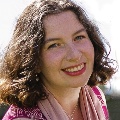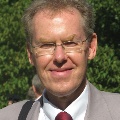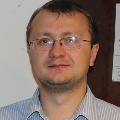University of Melbourne
Karen Day
“All Australians abroad speak of ‘going home’: this is how it feels to me,” said Karen Day, who has been appointed dean of science at the University of Melbourne, her alma mater. “I have been a traveller all my adult life. The best advice I have been given is to treat a move home as another move to a new place: come with no fixed ideas and engage with the unexpected changes that will undoubtedly have occurred in the 20 or more years I have lived abroad. I am very excited to get to know the university anew.” Professor Day, who takes up the post in January, is currently professor in microbiology and medicine at New York University, having worked at the University of Oxford and Imperial College London. She said she wanted Melbourne’s Faculty of Science to grow in interdisciplinary areas and planned to enhance community engagement with Australian and global business as future employees of the university’s graduates. The child of migrant parents who expected her to be a doctor, Professor Day “rebelled early” in choosing science. Her experience of researching tropical diseases at Melbourne led her to embrace the academic life.

University of Lincoln
Lucy Easthope
A disaster-response expert who has joined the University of Lincoln as senior lecturer in forensic science said her interest in the field was stimulated while growing up in Birkenhead during the 1980s, the decade of two major football-related disasters. “My dad said the first time I got very animated and enquiring was watching footage of the Bradford City fire” in 1985, said Lucy Easthope. A teacher in Liverpool, he was “devastated by the misrepresentation of people” after the Hillsborough disaster in 1989. “I don’t think you grow up in Birkenhead in the 1980s and say: ‘I’m not going to have a set of politics or beliefs that I will fight for.’ I don’t really have a career: I have a set of passions I use to sustain me.” Dr Easthope’s research focuses on planning in the event of mass fatalities, victim identification and caring for survivors and the bereaved, with a special interest in the care and return of personal effects. She said she was proud of her work but understood its connotations. “It’s hidden: you plan for a spectacular event like the Olympics and you’re not going to say there are lots of people working behind the scenes on something that hopefully will never be used. But without their work, we would be in a much more perilous position.” Dr Easthope studied at the universities of Bristol and Leicester and Lancaster University, and has held positions at the universities of Hertfordshire and Bath, among others.

Institute of Education
William Locke
A higher education management specialist has joined the Institute of Education, University of London, returning to the institution after training as a teacher there “many, many, many years ago”. William Locke, who joins as reader in higher education studies and co-director of the Centre for Higher Education Studies (CHES), will also manage the institute’s MBA in higher education management, established in 2002 and the first of its kind in Europe. Mr Locke has previously held positions at the University of Sussex, The Open University, Universities UK and the Higher Education Funding Council for England. He said he was “personally committed” to the further professionalisation of higher education management and wanted to build on the solid foundations already in place for CHES and the MBA, internationalising the work of both. Having held both management and academic positions, Mr Locke acknowledged that there had perhaps been too much focus on the former. “I think there’s a danger in some institutions…that the academic voice has been lost,” he warned.

Liverpool Hope University
Viachaslau Filimonau
A lecturer in tourism at Liverpool Hope University has praised the institution’s familial environment, saying it offered a key advantage for his work. Viachaslau Filimonau, who joined Liverpool Hope from Bournemouth University, said he felt the institution was a place where academics interact with one another and with students “more actively and frequently compared with larger institutions in the UK”. Dr Filimonau’s research focuses on the field of sustainable tourism and encouraging tourists to act collaboratively while on holiday, although he said it was difficult to convince society to take this on board. “Changing the way tourists think represents a major challenge for tourism policymakers and businesses. However, I would not be too pessimistic. There is evidence that the term ‘sustainable’ may serve as a key attractive factor in tourism, subject to the use of appropriate marketing tools and messages.” Dr Filimonau said his interest in the field was sparked by his first tourist experiences visiting historical sites in his native Belarus, which he found to be “mismanaged”, especially in environmental terms. “Unfortunately, environmental management and tourism were not priority topics in so-called ‘newly independent’ states after the break-up of the Soviet Union,” he said. Dr Filimonau studied at Belarus State University, Lund University in Sweden and Bournemouth.
Other changes
Wendy Purcell, vice-chancellor of Plymouth University, has been invited to become a non-executive board member of the Department for Business, Innovation and Skills by Vince Cable, the business secretary. In the role she will provide external advice and expertise to inform BIS’ decision-making, meeting regularly with Mr Cable, his team and with other non-executive members. She joins BIS ministers, senior officials, business leaders and investors on the board.
An international researcher has been appointed associate professor at Plymouth University Peninsula Schools of Medicine and Dentistry. Bing Hu takes up the professorship in oral and dental health research, and joins from the University of Lausanne. Dr Hu was one of the first licensed orthodontists in China and gained his doctorate in 2006 through a joint programme between the Capital Medical University in Beijing and the University of Strasbourg.
The British Academy has elected 42 new fellows from 18 UK universities. They span the full range of the body’s subject areas and include: Dominic Abrams, professor of social psychology and director of the Centre for the Study of Group Processes, University of Kent; Cécile Laborde, professor of political theory and director of the legal and political theory programme, University College London; Stella Bruzzi, professor of film and television studies, University of Warwick; and Gareth Stedman Jones, professor of the history of ideas, Queen Mary, University of London, and a fellow of King’s College, Cambridge.
The University of Birmingham has announced two appointments across its schools of business and education. Derek Condon has joined as director of MBA programmes and professor of international business and corporate governance, while Julie Allan has been made professor of equity and inclusion.
To send submissions – with pictures – to the People section email: people@tsleducation.com
Register to continue
Why register?
- Registration is free and only takes a moment
- Once registered, you can read 3 articles a month
- Sign up for our newsletter
Subscribe
Or subscribe for unlimited access to:
- Unlimited access to news, views, insights & reviews
- Digital editions
- Digital access to THE’s university and college rankings analysis
Already registered or a current subscriber?
